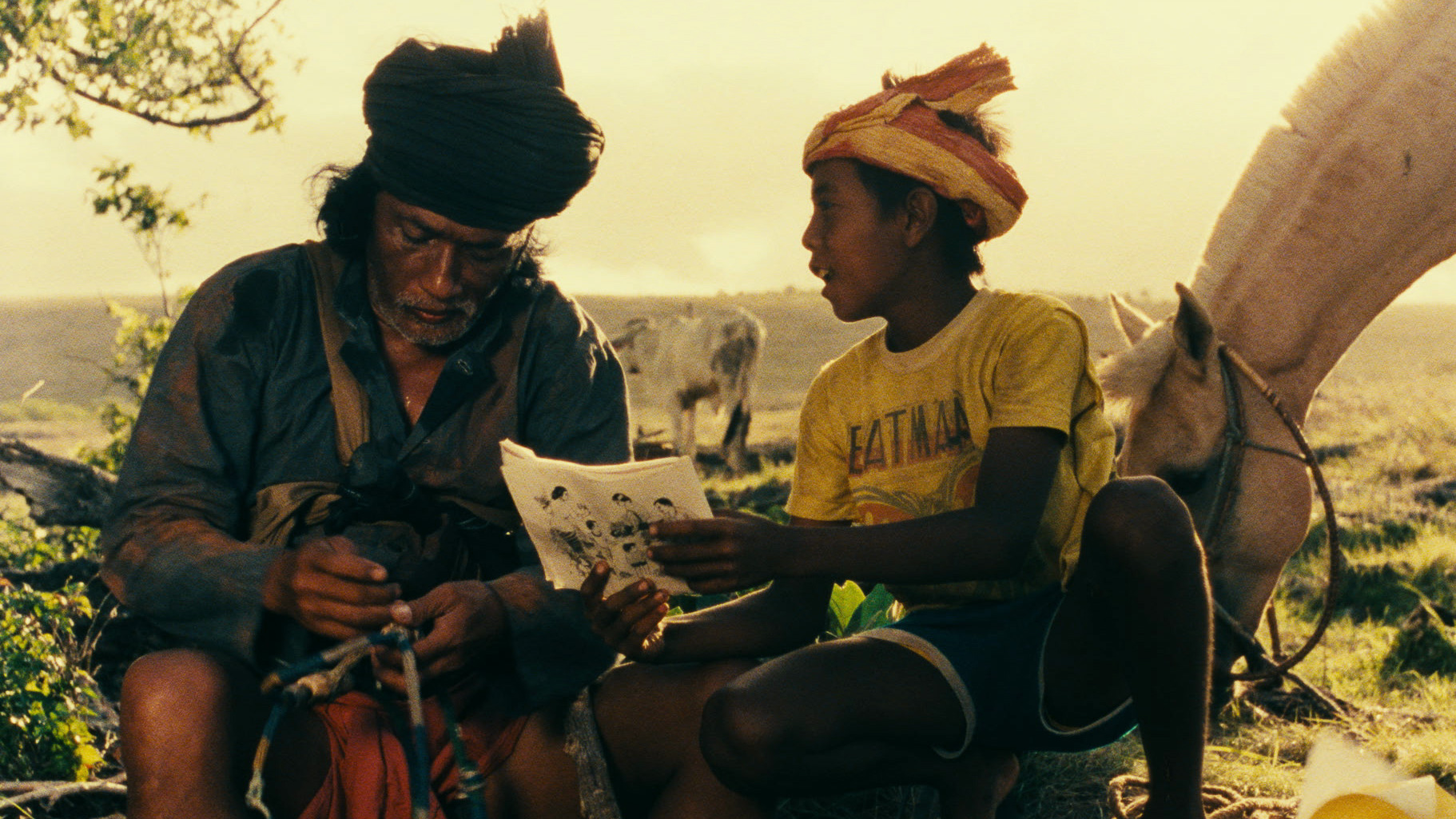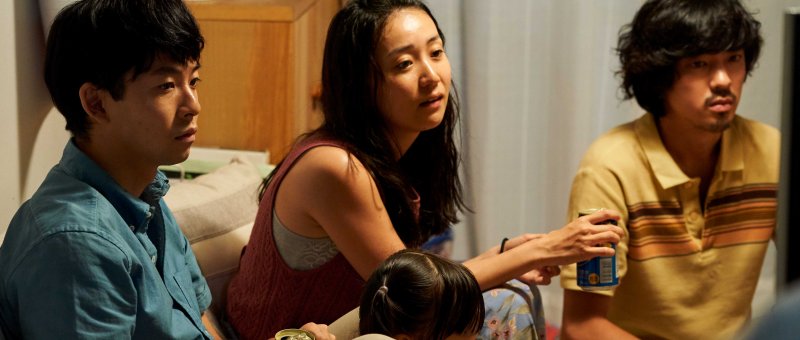A lonely, motherless child’s infinite “curiosity” threatens to destabilise the intensely traditional world in which he lives in Garin Nugroho’s melancholy Sumba fairytale, Letter to an Angel (Surat untuk Bidadari). Taking ownership of a borrowed camera, the boy seeks instant images in order to make sense of his existence and thereafter to explain the way sees the world to those around him, but often finds that his messages go unheard while his society finds itself pulled towards a fractured modernity anchored by corrupted male authority.
At nine years old, Lewa (Windy) is in a way no one’s child and everyone’s. While his father works his land, Lewa rides his horse or spends time with the local women in search of echoes of the mother he lost in infancy. Somewhat literal, he finds it difficult to follow his Indonesian textbook, stumbling over the simple phrase “this is my mother” which might under the circumstances be an insensitive sentence at the best of times, but in this case because the illustration is of a typical Indonesian woman rather than a woman from his community and does not resemble him or the image he had in his mind of his mother. Asking his father about her elicits only partial history as he shows him the wreckage of the bus accident in which she died, Lewa becoming mistakenly fixated on the poster of Madonna (in name at least literally “the mother”) pasted on the side, snapping it with a polaroid camera gifted to him by a sympathetic travelling performer.
“Pictures show reality” he muses, talking to another of his maternal figures, Berlian Merah (Nurul Arifin), the village’s most beautiful woman. Beauty can, however, be a curse though she perhaps won’t quite know that. Evil local big wig land grabber and Elvis obsessive Kuda Liar (Adi Kurdi) desires her and so manoeuvres to have her husband killed. Not content, he later goes after Lewa’s other mother figure, the school teacher who told him of an angel who could heal the sick and bring the dead back to life. Muddling images in his mind, Lewa skips school and writes letters to the angel as if she were his mother, looking for comfort and guidance but finding little more than frustrating silence. Kuda Liar hassles his father for his land, and his mothers for their bodies, thinking nothing of throwing little Lewa himself off a cliff simply for the crime of existing.
Yet Lewa is repeatedly saved by his village chief who insists that Lewa is a good kid and being “curious” is no bad thing. It’s that curiosity, however, that repeatedly gets him into trouble, especially when he takes a photo of something he shouldn’t and offends a neighbouring village, triggering a long dormant feud into a moment of mass violence. “I don’t understand why I’m told I’m a bad person when all I wanted was to show my father’s real face” he writes in a letter on another occasion, unable to understand why others are not curious in the same way as he is, unwilling to see his version of the truth as mediated by the “reality” of his photographs.
Garin Nugroho too is determined to capture a certain kind of “reality” of the lives of the islanders as they practice their traditional culture, including footage of a series of rituals as they are performed complete with bloody acts of animal cruelty while Kuda Liar is at least forced into performative contrition in a “ceremony of forgiveness” for throwing Lewa off the cliff (into water, he is unharmed), demonstrating the way such ceremonies are used to mediate disputes within the community unlike the more “civilised” trial which occurs at the film’s conclusion, charged with discerning a more concrete notion of “reality” but in actuality setting out to prove a preconceived narrative, unwilling to hear the truths of others. It’s this contradictory authority that Lewa struggles to parse, looking desperately for his mother while inheriting only problematic visions of masculinity from his distant, angry father, to the “mad” uncle Malaria (Fuad Idris), and the cruel eccentricity of Kuda Liar. Eventually it imprisons him with the notion that he must be “rehabilitated”, presumably to become less “curious”, taking away from him the means to define his own reality for himself but allowing him perhaps to find that which he had been looking for.
Letter to an Angel streamed as part of this year’s San Diego Asian Film Festival.
Trailer (English subtitles)



















